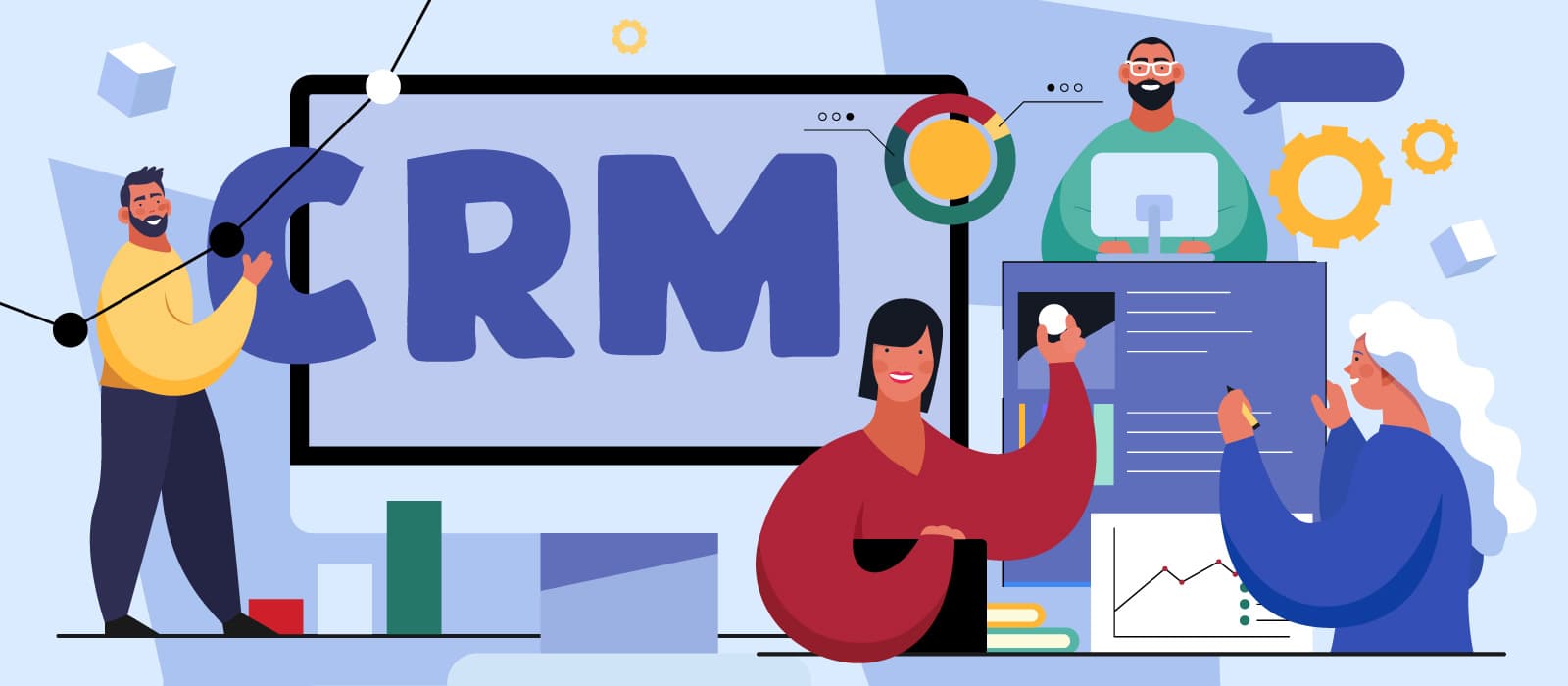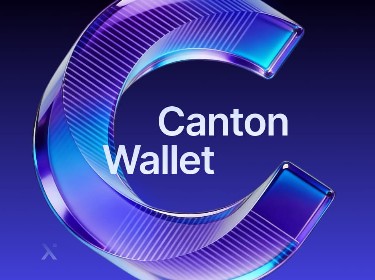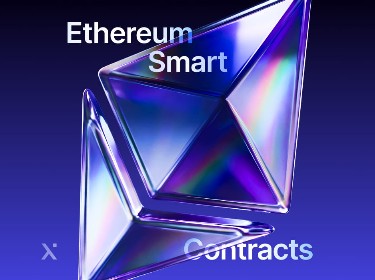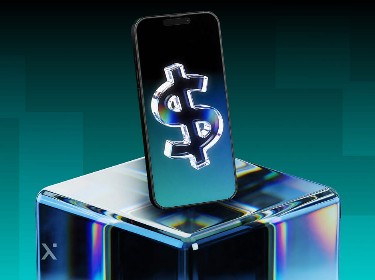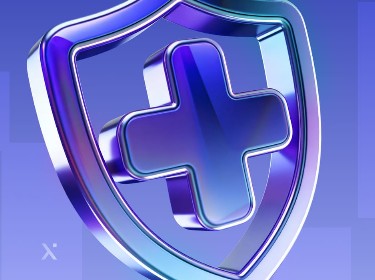The power of blockchains is in their capacity to transform and improve any given industry. In customer relationship management, blockchains facilitate security, privacy, and better network building. Check out the Salesforce Blockchain story as an example.
Customer relationship management (CRM) is a technology comprising infrastructure and application software that helps companies manage customer relationships and interactions and allows for easier business expansion.
With CRM, enterprises can stay connected to customers, streamline their processes, and improve overall profitability. To enable good relationship management, CRM applications ease contact and sales management and give insights into agent productivity. The tools involved span across marketing, sales, digital commerce, and customer service interactions.
Currently, the challenges CRM is facing are related to increasing security concerns, the need for data privacy, and the ability to build trusted networks.
One of the most competent players in the industry, Salesforce, embarked on a journey to address these challenges using blockchain technology. News about Salesforce working on blockchain first emerged in 2019, and by 2020 the company already had several successful projects up and running.
Read on to find out more about Salesforce Blockchain applications, architecture, and benefits.
What is Salesforce
Salesforce is a successful software-as-a-service (SaaS) company from San Francisco, California. The company was founded by former Oracle executive Marc Benioff, Parker Harris, Dave Moellenhoff, and Frank Dominguez.
Salesforce provides cloud-based customer relationship management (CRM) services and other enterprise applications that help companies improve their customer services, automate marketing efforts, and develop better mobile applications.
The company has over 150,000 customers that use their services. Here are some of the most successful services offered.
Salesforce
One of the company’s most successful services is the Salesforce service itself. Salesforce offers a tool for case, task, and issue management. Users can track their customer cases, connect and converse with them on social networking websites. Additionally, users benefit from various analytical tools and services such as email alerts, Google search analysis, and access to customer contracts.
Lightning Platform
Lightning Platform is a platform-as-a-service (PaaS) that allows developers to create add-on applications that integrate into a Salesforce application. The platform offers many developer tools such as Lightning, Apex, and Visualforce, all developed by Salesforce and its acquired companies.
Experience Cloud
Experience Cloud, formerly known as Community Cloud, provides Salesforce users with the ability to create online web properties and custom portals in their instance of Salesforce for external collaboration, customer service, channel sales, and other uses.
Work.com
Work.com is a social performance management platform that helps managers and employees improve work performance through continuous coaching, real-time feedback, and recognition.
AppExchange
Launched in 2005, the Salesforce AppExchange is an online application marketplace for third-party applications that run on the Lightning Platform.
myTrailhead
myTrailhead is an online training platform that extends Salesforce functionalities to provide users with training content specific to their usage of Salesforce and enables them to create and publish their own training content and programs.
Blockchain platform
In 2019 Salesforce launched a blockchain platform based on Hyperledger Sawtooth to promote the development of blockchain networks and apps and their integration with CRM. This service in particular has attracted a lot of attention as the popularity of blockchain, with its ability to handle data securely, increases. With this service, Salesforce is planning to establish market dominance in blockchains for CRM.
Discover how Hyperledger development services can transform blockchain advances into business breakthroughs
The role of blockchain in the establishment of trust in open networks
![]()
Blockchain is a type of a distributed ledger that keeps track of an expanding list of network transactions. The distributed ledger acts as a database that is shared, synchronized, and maintained by a peer-to-peer network with no central authority. In a public blockchain, each network-participating node can freely access all network transactions and download a unique copy of them. Whenever new transactions occur in the network, the change is recorded and reflected in the individual copy of each network node.
The transactions are organized in a hierarchical chain of blocks. The integrity of each block in the chain is enforced by sophisticated cryptography algorithms. New blocks are committed to the global blockchain by participating network nodes after the successful completion of the decentralized consensus procedure. In the case of Bitcoin blockchain, this consensus is called Proof of Work (PoW). It involves proving that a certain amount of computational effort has been expended for the purpose of validating network transactions. Ethereum uses Proof of Stake consensus, while private and consortium blockchain networks have their own dedicated consensus mechanisms.
Blockchains have several advantages over existing systems. Their decentralized nature allows all participating nodes to be part of the consensus without needing a central authority. Data transparency is granted to every user with access. Transparency is the main reason why blockchains can be trusted.
There are three different types of blockchains: public, private, and consortium. Public blockchains are permissionless networks, open for anyone to participe. Private blockchains are access-restricted and permission-based environments that have rules on how data is accessed and broadcasted and how consensus is reached. Consortium blockchains are a mixture of public and private blockchains where the consensus is reached by a group of equal validators, usually appointed by a majority of the consortium members.
How can blockchain be used in CRM?
The interplay between blockchain technology and customer relationship management (CRM) systems significantly enhances business workflow efficiency and provides trust inside partner networks. Due to their security characteristics, blockchains help build trust between enterprises and customers through increased transparency, and better traceability of customer interactions.
Blockchains are inherently customer-centric due to their peer-to-peer nature. Brands that are favoring exceptional customer experience and loyalty are considering blockchain technology as a long-term investment. CRM applications in healthcare, insurance, utilities/energy, supply chain, telco, publishing, and real estate are favorable to blockchain adoption due to the regulated nature of those markets. All these applications have strictly regulated processes as well as interaction with customers.
Blockchains enhance CRM by offering a holistic view of customer activities. Due to their distributed architecture, data is handled in a new way. Instead of swimming in the ocean of duplicated customer data, enterprises have access to a unique set of records that can help reduce redundancy and increase responsiveness.
![]()
In B2C, CRM blockchains facilitate distributed and encrypted ledgers that operate without centralized management and serve as highly trusted repositories for financial transactions and other sensitive data such as identities and property records. Smart contracts development services help in the automated execution of contract responsibilities, eliminating friction when transferring data and value.
As customer expectations rise, CRM systems are expected to keep up with new demands. In recent years, data privacy has been increasingly important. Consumers have been required to share personal information and expose themselves to risk through breaches. A blockchain will play a crucial role in safely storing personal data.
Not only CRM: this solution will show you how blockchain can be used in document management
Salesforce Blockchain
Salesforce Blockchain is a distributed ledger infrastructure that facilitates user applications and Salesforce services. It is built on Hyperledger Sawtooth technology and customized for Salesforce Lightning. Customers can create a dedicated network to share data between applications in a secure and trusted manner. Salesforce Blockchain provides an innovative and unprecedented means of forming trusted partner networks. Its design allows partners in a network to securely publish and independently verify records directly from the system they use. Data in blockchain can be reported and used for automation in the same way a partner would normally do it, but with added security.
One of the main value propositions of Salesforce Blockchain is the level of simplicity it brings to the building of secure networks and to establishing the right authentication protocols. Besides, Salesforce Blockchain lowers the barriers to accessing the technology.
As well as lowering the technological complexity of building trusted partner networks, Salesforce Blockchain also enables enterprises to bring together authenticated distributed data and CRM processes. Salesforce’s main objective in providing this blockchain service is to let their customers focus on application logic rather than the infrastructure.
Key components of Salesforce Blockchain
Hyperledger Sawtooth is a modular platform for building, deploying, and running distributed ledgers. This blockchain framework employs a novel consensus algorithm called Proof of Elapsed Time (PoET), suitable for distributed validators with minimal resource consumption. Salesforce Blockchain features a smart contracts application programming interface. This interface enables companies to create novel business models that promote trust and automation. Smart contracts, in their turn, facilitate fulfillment rules that are transparent to all partners.
Salesforce Blockchain consists of three main components: Blockchain Builder, Blockchain Connect, and Blockchain Engage.
Blockchain Builder is a toolset for developing Salesforce Blockchain applications. It allows developers and admins to create a blockchain app, add partners, and establish a node infrastructure. The Builder also features an API for programmatic application setup.
Blockchain Connect serves as the bridge between the blockchain and Salesforce apps. It is a data synchronization service that allows objects and fields from the blockchain to be displayed on record pages in Lightning, Community, or custom applications.
Blockchain Engage facilitates the sharing of Salesforce Blockchain applications and provides read and write access controls to partners in a secure network.
Salesforce Blockchain benefits
![]()
Salesforce Blockchain is a managed blockchain platform that promotes low development complexity and offers numerous benefits for customer relationship management. The most prominent benefits are easy data automation and network building as well as enhanced partner engagement.
Data automation
Salesforce Blockchain enables users to easily respond to blockchain data insights through native integration with Salesforce. Enterprises that utilize Salesforce Blockchain will have a unique opportunity to run Einstein-powered AI algorithms that use blockchain data to achieve enduringly secure and trustable sales predictions, forecasts, and more.
Easy network building
Salesforce Blockchain facilitates the building and maintaining of blockchain applications, networks, and smart contracts that are unique and specific to business requirements. The platform utilizes a low-code approach that was an original feature of other Salesforce apps as well. Users can create and share blockchain projects with the same process as any customer relationship management object.
Enhanced partner engagement
Enterprises leverage Salesforce Blockchain to reduce the barriers to entry for distributors, partners, and intermediaries. A set of pre-built apps and application programming interfaces allows for the integration of any existing blockchain. A specialized and intuitive engagement layer enables the simplified adding of third parties to the blockchain.
Planning to develop a comprehensive SaaS solution? Contact our SaaS development company
Salesforce Blockchain setup and operating principle
The use of Salesforce Blockchain starts with configuration using Blockchain Builder. This interface is similar to the Lightning App Builder. During the initial setup, the information to be published in the blockchain gets represented as external objects. The external object representation lets one create connections between blockchain data and provides users with the ability to work with blockchain data from other Salesforce apps.
External objects are blockchain entities that belong to a cryptographically secured ledger. A managed blockchain backend handles the publication of data securely and sequentially to this ledger. Whenever a record changes, Salesforce Blockchain publishes new ledger entries for those changes. This process results in an auditable and independently verifiable history of data changes. This history is visible to every participating network and reflected in each copy of the ledger.
Things app developers should consider
The key to success with utilizing Salesforce Blockchain is understanding how to identify valid use cases. To explore the compatibility of an app with Salesforce Blockchain, one should consider several factors, including decentralization and auditability requirements, and the level of trust that needs to be established among partners.
In Salesforce Blockchain, every partner has an identical copy of the data in their ledger. However, any single ledger is not an ultimate source of data, as consensus on the validity of data is reached among all partners.
Blockchain-based networks provide auditability of data on the ledger and can ease verification of regulatory compliance. Nevertheless, some of these procedures may be easier to complete if all changes to data were recorded as individual entries. If the application needs a granular, historical record of data and changes over time, then it is a good fit for Salesforce Blockchain.
One of the most prominent advantages of blockchain technology is the ability to establish secure and trusted relationships between many different parties. If the application involves a large (or unknown) number of partners, who may or may not trust one another, then the benefits of blockchain become ever greater. This consideration is important, for networks that already have established trust, a blockchain-based approach may not be necessary.
Take a look at this unique UTXO-based blockchain and dApp development platform
Salesforce Blockchain use cases
Salesforce Blockchain use cases include asset tracking, credentialing, and verification of goods. The most important benefit of Salesforce Blockchain is the ability to integrate with existing Salesforce data. It is also possible to integrate data into sales forecasts. In addition, enterprises are offered to have their own Salesforce Blockchain and integrate data from partners, distributors, and intermediaries.
So far, Salesforce Blockchain customers include automotive industry giant Lamborghini, Arizona State University, life sciences technology company IQVIA, and S&P Global Ratings.
![]()
Lamborghini
Lamborghini has resorted to Salesforce Blockchain to ensure that customers who own their super luxury cars are buying authentic spare parts and additional equipment. Lamborghini wants to make sure that only authentic equipment reaches their demanding customers while building a trusting and transparent relationship with them at the same time. As well as the certifying spare part authenticity, the automotive giant has integrated Salesforce Blockchain into their CRM to provide a complete heritage history for pre-owned vehicles. Blockchain enables the company to share verified, distributed data across its network of trusted partners and third parties.
Traditionally, a heritage Lamborghini car sold at auction would have to pass up to a thousand certification checks, a long and expensive procedure that is prone to error. To remedy this, Lamborghini created Sicura, a trusted network of distributed partners that enables them to quickly and securely authenticate cars while providing the owners with peace of mind. The proven uniqueness of a car can add up to 25% to its value.
Arizona State University
Arizona State University (ASU) is using Salesforce Blockchain to create an educational network that enables universities to verify and securely share information about student achievements and their educational history. ASU aims to expand the ability of universities and colleges to serve students. In their intended scenario, educational institutions save student transcripts and accomplishments into a Learner Trust Record on the unified ledger. Such a tool can create a record that describes the entirety of a student’s academic accomplishments. With Salesforce Blockchain, ASU hopes to give students ownership and control of their records, while significantly reducing friction between institutions. Such an approach will allow the university to provide faster and more intelligent services to students.
With Salesforce Blockchain, Arizona State University is expecting the implemented educational trust network to deliver a better service to a diverse set of undergraduate and graduate students. Such a network has the potential to provide a truly integrated and transparent exchange of student achievements.
IQVIA
IQVIA, a global provider of advanced analytics, technology solutions, and contract research services to the life sciences industry, recognizes blockchain as an emerging technology. The IQVIA leadership believes that blockchain could profoundly impact the life sciences and healthcare industries.
IQVIA is collaborating with Salesforce to explore blockchain applications within this sector. As an exemplar initiative, IQVIA uses Salesforce Blockchain for regulatory information management and drug label processing. Potential benefits include cost savings via label automation and improved audit traceability. Significant quality improvements can be achieved with common collaborative rules and enhanced security through immutable content sharing and real-time insights into operations.
S&P Global Ratings
S&P Global Ratings provides ratings, benchmarks, analytics, and data for the global capital and commodity markets. The company is currently leveraging Salesforce Blockchain to improve its business processes and reduce the time it takes to review and approve new business bank accounts. With the help of a shared ledger of know-your-customer (KYC) data, S&P Global Ratings can efficiently deal with multiple reviews in one trusted location. The resulting review process with its greater transparency and auditability of the overall operation make the company stand out among its competitors. Employees, partners, and customers are all satisfied by knowing that they engage only with verified and trustable organizations.
Traditionally, KYC reviews and approvals were long processes requiring multiple parties to ensure each business was evaluated accurately and completely. By leveraging Salesforce Blockchain technology, S&P Global Ratings can bring together a trusted network of reviewers working from a shared, transparent, and auditable review process. Such improvements result in expedited and more secure KYC reviews.
Conclusion
The application of blockchains in CRM has a lot of benefits for both companies and customers.
Blockchains enhance security. With most CRM databases on cloud servers, data security is crucial to maintaining customer loyalty and minimising the chance of fraud and repudiation.
Blockchains offer transparency. They allow companies to transparently manage their customer accounts without the need for intermediaries such as financial institutions or brokers.
Blockchains improve user privacy control. Handling customer data while allowing customers to stay in possession of the most crucial details is very important. Blockchain allows the storage and verification of encrypted personal information without actually sharing the sensitive information itself.
As one of the world leaders in CRM, Salesforce capitalizes on blockchain to provide its customers with unprecedented service.
Salesforce Blockchain allows users to easily build and maintain networks, apps, and smart contracts. Users can also create and share blockchain objects, and layer blockchain data on top of existing sales, services, and marketing flows such as search queries and process automation. With names like Lamborghini, S&P, IQVIA, and ASU, Salesforce is marching towards yet more market domination.
As the Salesforce example shows, blockchain is entering the majority of business applications and is becoming a defacto standard for storing information, executing transactions, performing functions, and establishing trust in an open environment. Navigating the development and use of blockchain to achieve your business aims can be challenging without the help of an experienced and successful blockchain development company. We at PixelPlex guarantee to translate your business ideas into secure, scalable, and profitable solutions by leveraging cutting-edge mobile application development software that enables seamless integration and robust blockchain functionality across platforms.
